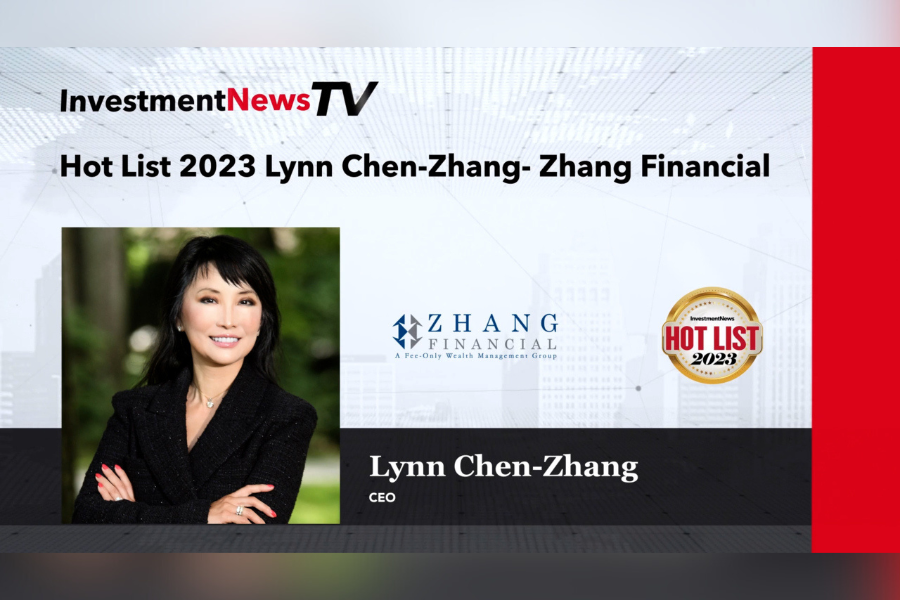To move advisers into the future, adoption is the new innovation
 1
1
Industry leaders discuss how to help advisers embrace new technology and service models
While many agree on what the future of advice will look like — increased competition from big firms and advisers using technology to offer holistic services beyond investment management — how the industry arrives there is a tougher question.
Getting financial advisers to embrace new business models and technology remains a challenge and was a recurring theme of InvestmentNews’ Future of Advice conference Wednesday in New York.
“Adoption is the new innovation,” said Steve Gresham, principal at The Gresham Co.
For example, Envestnet is focused on arming advisers with the data and tools they need to offer financial wellness, which CEO Bill Crager called the hallmark and long-term goal of the advice industry. This means improving how clients engage with their adviser and how advisers understand a family’s unique financial needs.
[More: Effusive praise for a fallen captain]
Beyond a financial plan and the traditional investment and insurance products tied to it, Envestnet wants Yodlee-powered apps to show advisers the day-to-day minutiae of a client’s financial life so they can help with credit and spending behavior, Mr. Crager said.
But how do you get advisers, especially those whose careers were based on picking stocks, to embrace these apps? Instead of reacting to clients’ needs, the technology of the future will prescribe ways an adviser can serve the client.
“The platform has to surface these recommendations, make it easy to execute and deliver to the end client,” Mr. Crager said.
[Recommended video: Perks and processes that top advice firms put in place to retain the best talent]
The technology also needs to be easier to use for both advisers and clients.
“We’ve built a highly functional, highly capable investment management platform. What you can do on Envestnet is extraordinary, but it’s not intuitive,” Mr. Crager said. “Usability is a huge issue.”
Part of improving usability involves breaking down complex technology platforms into smaller pieces, as MoneyGuide is doing with its “Blocks” feature.
Amy Young, global digital advisor at Microsoft, said advisory firms can implement this strategy as well and improve their tech adoption by being thoughtful about which pieces of technology are either the most impactful or the easiest to embrace.
Improving usability also will mean making critical decisions about what parts of the industry to standardize and automate, and where to double down on human-to-human relationship.
For example, many of the paper forms clients fill out can be digitized or even eliminated, said Robert Pettman, executive vice president of product and platform management at LPL. He compared it to the paperwork patients fill out in the doctor’s office even after booking an appointment online.
But that doesn’t mean eliminating the human receptionist, who can make clients feel welcomed and answer questions with a smile, said Christina Townsend, director and head of platform strategy at BNY Mellon Pershing.
“I went to the doctor and there was an iPad greeting me, but there was a person sitting there,” Ms. Townsend said. “That’s not the right experience to digitize.”
Beyond improving technology’s usability, firms can do a better job of communicating to advisers the new features of the technology and how it will help them, to build anticipation before it launches, Mr. Pettman said.
If a broker-dealer wants advisers to use new financial planning technology, the firms can’t keep talking all about transactions instead of progress toward goals, he said. “If you haven’t tailored your ecosystems, you can’t throw something out and tell advisers to change.”
The most difficult change for advisers, especially traditional stock pickers, isn’t learning new technology, it’s learning to have sometimes difficult conversations with investors. Kim Mackrill, creative director at Carson Group, recommended role-playing as a technique for practicing new ways of engaging clients.
“Advisers are afraid of being asked a question they can’t answer,” Ms. Young added. “Their value is holding the cards on this mysterious world of high finance.”
Changing the culture of financial services through training and hiring can “dial down the fear of looking dumb,” she said.
[More: Technology systems challenged to be all things to all advice firms]
Learn more about reprints and licensing for this article.








